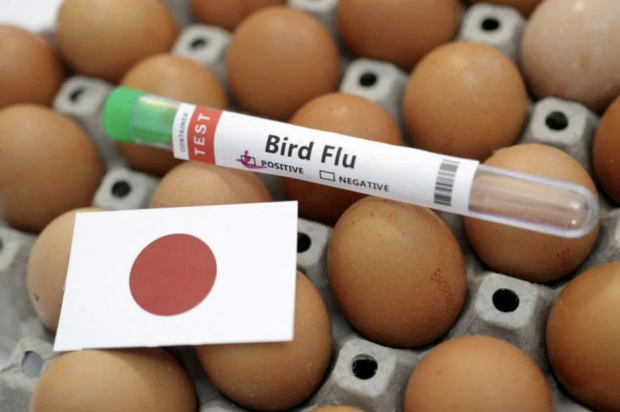150,000 hens killed in fire at Ibaraki farm amid shortage of eggs in Japan due to bird flu

A record 10.08 million chickens were scheduled to be culled in January 2023 to prevent the spread of bird flu. PHOTO: REUTERS
About 150,000 hens were burnt alive in a fire at a poultry farm in Japan’s top egg-producing prefecture early on Wednesday, amid a nationwide egg shortage resulting from bird flu.
A security guard heard an explosion and found one of nine chicken coops at the Minori Farm in Ibaraki prefecture, north-east of Tokyo, in flames, NHK News reported.
Fire and rescue services said they received an emergency call at around 3am and dispatched 17 fire engines to fight the fire, which was extinguished only after about 4½ hours.
Local police said there were around 830,000 egg-laying hens on the farm.
No workers were injured. Investigations into what started the fire at the 4,000 sq m farm in Omitama city are ongoing.
Article continues after this advertisementJapan has culled more than 17 million, or about 9 per cent, of the country’s egg-laying hens since the first case of bird flu was detected in October 2022.
Article continues after this advertisementA record 10.08 million chickens were scheduled to be culled in January 2023 to prevent the spread of the disease, including 930,000 chickens in Ibaraki, Japanese media reported.
A farm ministry survey reported that about 15.3 million hens were raised commercially in the prefecture as at February 2022.
The nationwide egg shortage has led to some restaurants removing egg items from their menus.
A survey on April 5 showed that a third of restaurants in Japan have stopped serving dishes such as pancakes or chawanmushi, a savoury steamed egg custard, citing “severe egg shortages” and “soaring prices”.
The price of medium-sized eggs in capital Tokyo in April is 350 yen (S$3.50) per kilogram, up more than 70 per cent from a year ago, according to major egg wholesaler JA.Z-Tamago.
RELATED STORIES